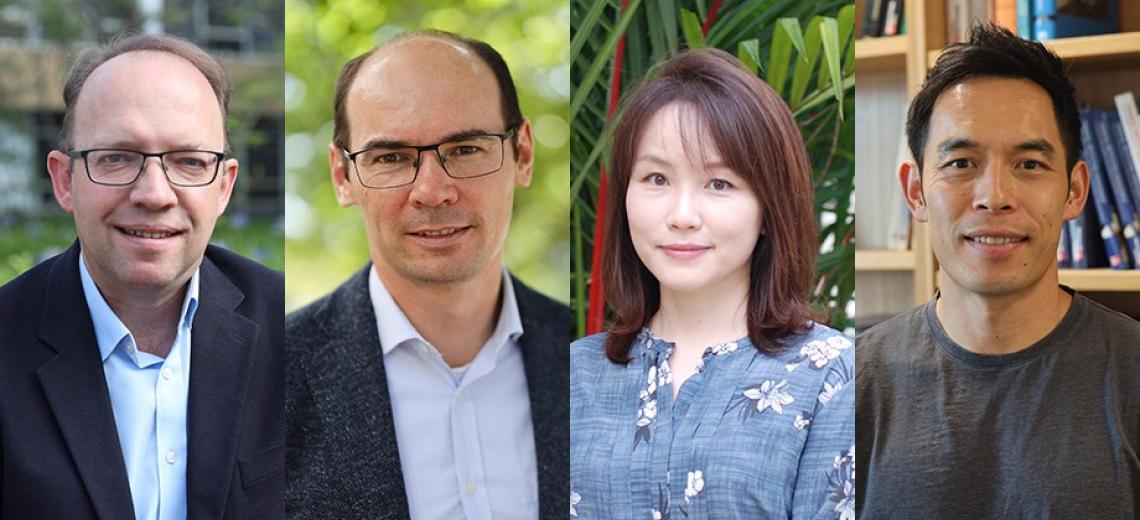
5 minute read
The ANU College of Business and Economics (CBE) celebrated a number of research funding and publication successes in 2019. With respect to the former, CBE academics were awarded funding from industry and from the Australian Research Council, resulting in College academics working as Chief Investigators on 23 active research projects across four different grant programs. CBE academics also had their research accepted for publication in top international outlets during the year, a small sample of which is summarised below.
Changes in Recommendation Rating Systems, Analyst Optimism, and Investor Response
Securities analysts play an important role in capital markets, making investment recommendations on the shares they cover. Unfortunately, conflicts of interest mean analysts don’t always make recommendations that reflect their true belief about these stocks. Indeed, a survey conducted in the 1990s showed that over 35% of the analysts surveyed had misrepresented a firm’s past or expected future performance, while 55% admitted to writing investment reports that supported predetermined conclusions.
Associate Professor Mark Wilson and former CBE PhD student Yen-Jung Tseng explore how changes to analyst recommendation systems affected the objectivity and independence of subsequent recommendations. Results suggest changes were effective in reducing the effect of analysts’ conflicts of interest without affecting the informativeness or profitability of recommendations.
Read more about Mark and Yen’s research here.
Effects of Taxes and Safety Net Pensions on Life-Cycle Labor Supply, Savings and Human Capital: The Case of Australia
Australia’s superannuation system means most of the financial cost of retirement is not borne by the Federal Government. Despite being a long way ahead of other countries in this regard, the size of Australia’s Age Pension program means there are still improvements to be made.
Professor Fedor Iskhakov has developed a dynamic life-cycle model to better target Age Pension payments. The model recommends that taper rates, or the rates at which benefits reduce in response to rises in income and/or assets, should gradually increase over the next 15 years to better target the Age Pension at those who need it most.
Read more about Fedor’s research here.
Global Political Uncertainty and Asset Prices
What is the economic impact of an uncertain political climate? Empirical evidence suggests it is negative, even if only temporarily, with uncertainty depressing capital investment by firms, reducing the number of firms going public, and lowering the level of merger and acquisition activity. However, this evidence focuses solely on domestic impacts and, as such, provides no evidence on any effects further afield, nor the channels through which they are felt.
Dr Phong Ngo uses the US election cycle to gauge the global effect of political uncertainty. Results show that, in the lead up to the election, monthly equity returns in 50 non-US countries are, on average, 1.4% lower than in other periods. Moreover, political uncertainty increases global risk aversion, prompting investors to liquidate risky equity investments and invest in safe assets such as sovereign bonds.
Read more about Phong’s research here.
Thanks for Your Ideas: Gratitude and Team Creativity
Teams play a pivotal role in organisations around the world, affecting productivity and the generation of new ideas. Their importance means that identifying new ways to increase team creativity can have significant payoffs.
Dr Guihyun Park explores how teammates feeling gratitude towards one another affects groups’ overall creative performance. Her work shows that gratitude not only improves the quality of collective information processing, it increases the thoughtful exchange of ideas and, ultimately, culminates in greater team creativity. This is in contrast to the demonstration of numerous other positive emotions including happiness, which can trap teams in groupthink and shallow kinds of discussion.
Read more about Guihyun’s research here.
The College is always keen to explore research collaborations with the public and private sector and to reconnect with alumni. Please get in touch if you would like to know more about partnering with us.
